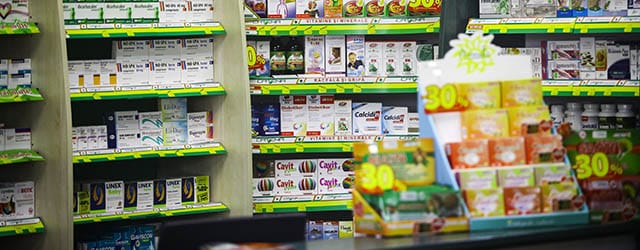The slew of M&A deals in the pharmaceutical industry could leave some firms with a bad hangover. Fitch Ratings warns that the race to find the next blockbuster drug could hurt overall credit rankings for the sector.

In the first quarter of the year, total healthcare merger volume topped $110 billion. That’s more than double the level in the same period a year earlier, according to Thomson Reuters. The surge has been fueled by low interest rates, making it relatively cheap for pharmaceutical companies to pursue potential targets.
The feeding frenzy could cause unpleasant side effects, however. In a report released in early April, Fitch says the acceleration in deal activity in the first months of 2015 reinforces the firm’s negative outlook on the sector—this despite positive fundamentals. The rating agency cited risks from takeovers, pressure for higher shareholder returns and increased exposure to potential interest-rate hikes owing to high leverage.
“As large pharma companies have struggled with R&D costs and productivity, the biotech sector has become an increasingly important source of new drug discoveries, making them a top M&A target,” Fitch says. “But such specialist deals tend to be strategically riskier than more traditional pharma M&A, as biotech start-ups have much narrower R&D focuses and smaller pipelines.”
Fitch says biotech valuations could be highly volatile because of the difficulty in estimating future cash flows for businesses in a market facing increased competition. “Valuations have probably been boosted by pharma companies’ low borrowing costs and deep market liquidity, as equity investors bet the biggest players will be willing to stock up on cheap debt to fund acquisitions,” Fitch says.
Still, acquisitions could alleviate some pharmaceutical companies’ dependence on one or two successful drugs. Joshua Owide, director of healthcare industry dynamics at GlobalData, a London-based research and consulting firm, says: “AbbVie’s acquisition of Pharmacyclics, valued at $21 billion, will help alleviate the company’s dependence on Humira.” Humira, which is used to treat arthritis, Crohn’s disease and psoriasis, accounted for 62% of AbbVie’s total revenues in 2014. The drug’s US patent is expected to expire in 2018.
AbbVie’s acquisition, which was the largest pharmaceutical deal in the first quarter, is typical of the current rash of deals. Pharmacyclics’ lead product, Imbruvica, which is used to treat leukemia, will bring in revenue of more than $40 billion over 15 years, Owide says. The deal will also include assets in development for multiple cancer types.
“This is a major step for AbbVie following the terminated Shire deal, as the rest of AbbVie’s business is faltering,” Owide says. “The company’s pharmaceutical revenues, excluding Humira, shrank by $467 million last year.”
Chicago-based AbbVie and Dublin-based Shire terminated their planned $54 billion merger in October, following new rules from the US Treasury to deter companies from shifting operations to lower-tax countries. Shire agreed in January to buy New Jerseybased NPS Pharmaceuticals for $5.2 billion to strengthen its portfolio of drugs that fight rare diseases.



